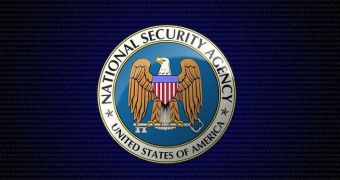More than a year after the NSA’s dirty little secrets were exposed to the world, an independent board has looked into the data collection programs created by the intelligence agency and deemed that they’re both “legal and effective in protecting national security.”
Basically, the NSA follows the letter of the law to the smallest of details and not only are these invasive programs completely OK, but they’re also helping fight against enemies of the United States and its partners.
What this new panel claims is exactly what the NSA has been stating for the past year and what other panels before it have found no proof of. As far as the legality of the programs goes, we shouldn’t really be surprised that the rules have been bent in such a way, and loopholes have been set in place to make surveillance practices completely legal, even if they are completely amoral.
The statements come from the Privacy and Civil Liberties Oversight Board, which has been trying to convince everyone that the NSA does nothing wrong for months, especially since it said pretty much the same thing back in January, too.
While the entire “702 program,” namely actions taken by the NSA with the help of the 702 section of the Fisa Amendments Act from 2008, is perfectly OK despite the fact that the intelligence agency is given permission to collect huge amounts of foreign data, alongside American information, the board did question how much the NSA looked into American’s communications.
“It has played a key role in discovering and disrupting specific terrorist plots aimed at the United States and other countries,” reads the 200-page long report.
While it did praise the NSA’s effectiveness and the part taken by the data collection programs in fighting terrorism, not even this panel took the agency’s side on one of its biggest lies – the fact that information collected under Section 702 disrupted 54 terrorist plots.
Instead, the panel found that it managed to take down “approximately 30 cases” with this data, something that’s odd considering other panels before it didn’t even manage to find a single case.
Another phrase that sticks out in the report is the claim that the NSA’s data collection under Section 702 can’t be characterized as “in bulk.” “Instead, the program consists entirely of targeting specific persons about whom an individualized determination has been made,” the document reads.
This, of course, is not true, and the NSA has admitted to preferring to collect all phone call metadata, for instance, and looking through it when need arises.
The sad part about this lengthy report is that there’s evidence to contradict all the good opinions about the NSA, and the fact that the critiques brought to the agency are extremely weak.

 14 DAY TRIAL //
14 DAY TRIAL //